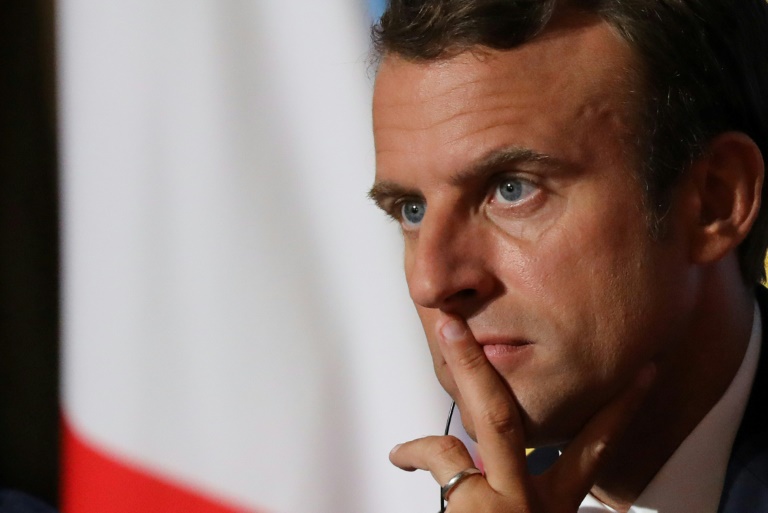French President Emmanuel Macron faces a difficult week as lawmakers weigh up a controversial bill that toughens France’s stance on migrants, with even some of his own party members reluctant to back it.
After France processed a record 100,000 asylum applications last year, Mr. Macron vowed to grant asylum faster but also to deport economic migrants more swiftly, while better integrating those who stay.
The new law will be presented to his cabinet Wednesday ahead of parliamentary debates that promise to be stormy, with migrant charities and left-wingers blasting the bill as repressive.
Staff at France’s asylum court and the Ofpra refugee protection office are even set to strike Wednesday over a law that unions have blasted as “an unquestionable break with France’s tradition of asylum.”
Centrist upstart Mr. Macron came to power in May in an election that saw his far-right opponent Marine Le Pen ride concerns over immigration to a record 34 percent of the vote.
While the infamous migrant “Jungle” camp in Calais was demolished in 2016, young Africans and South Asians continue to head to the coast hoping to stow away to Britain, while others are camped out on the streets of Paris.
Mr. Macron is under pressure to toughen his policy in a country where 63 percent told a BVA survey this month that there are too many immigrants, and has promised a policy that that mixes “efficiency” with “humanity.”
But his proposals are under fire from both sides, with the rightwing opposition Republicans party branding them “too timid” and NGOs saying they erode the rights of the vulnerable.
“We’re asking for it to be withdrawn,” said the Cimade charity which works with migrants. “We’re not even in favour of fighting for changes to the bill, because the philosophy behind it is just too repressive.”
Crackdown on Economic Migrants
The ranks of Mr. Macron’s own broad centrist coalition, drawn from both the left and right, are also deeply split on one of the most divisive issues of his presidency so far.
The government has already had to abandon a controversial proposal to deport people to a third country deemed “safe.”
And a separate law on taking in “Dublin” migrants — those whose asylum claims are registered in other E.U. countries — sparked a tense debate in parliament last week, with some among Mr. Macron’s own ranks criticising it.
“We are in danger of normalising locking people up,” said Florence Granjus, a member of Macron’s Republic On The Move (LREM) party.
The law aims to cut the waiting time on asylum applications from 11 months to six, while help will be given to those wanting to go home.
Migrants will in future be put in detention centres for a maximum of 90 days — double the current limit — in a measure that has been particularly criticised by charities.
Tighter deadlines for different stages of the court process, making it more difficult to appeal a decision, have also prompted concern among activists and immigration lawyers.
“The bill is completely balanced,” Interior Minister Gerard Collomb insisted last month. “It works on two guiding principles: France must welcome refugees, but it cannot welcome all economic migrants.”
Mr. Collomb was due to unveil new measures alongside Prime Minister Edouard Philippe in the southeastern city of Lyon on Monday, aimed at better integrating new arrivals.
But the interior minister has come under fire in recent weeks after he ordered immigration agents to go into homeless shelters to check people’s residency status.
Charities have taken the government to France’s highest administrative court over the policy, which they say breaches people’s right to seek shelter without fear of questions being asked.




















